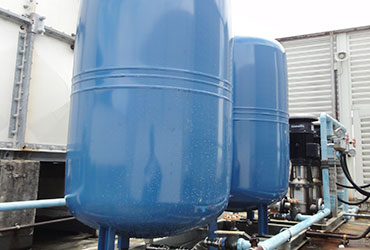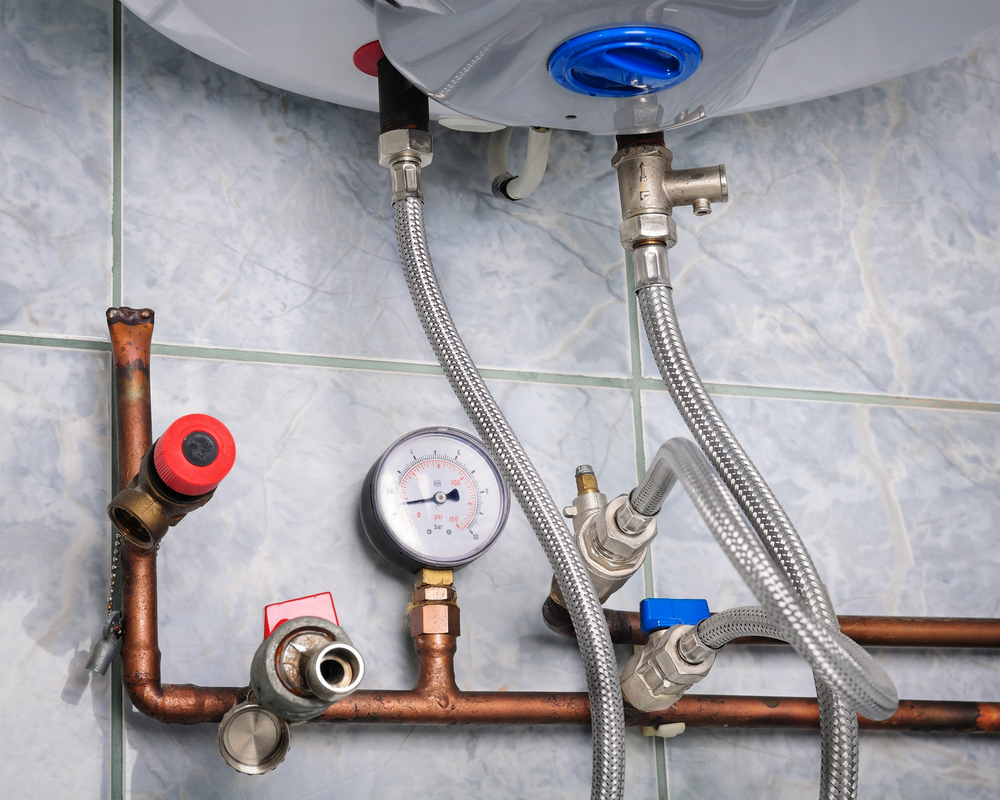Easy-to-Follow Strategies for Fixing Low Water Pressure in Your Home
Easy-to-Follow Strategies for Fixing Low Water Pressure in Your Home
Blog Article
Just about everyone will have their own individual way of thinking when it comes to 9 Reasons for Low Water Pressure in Your House.

Low tide stress in your house can be an irritating trouble, affecting everything from bathing to washing recipes. If you're experiencing weak water circulation, there are several possible causes and solutions to discover. In this overview, we'll discuss typical factors for low tide stress and practical actions to deal with the problem successfully.
Intro to Low Water Pressure
Low water stress occurs when the flow of water from your taps, showers, and various other components is weaker than common. This can make day-to-day jobs a lot more difficult and much less efficient. Recognizing the root causes of low water pressure is important to locating the best remedy.
Common Reasons For Low Tide Stress
Faulty Pressure Regulators
Stress regulatory authorities are accountable for keeping regular water stress in your home. If they malfunction, it can result in low water pressure or irregular flow throughout the house.
Local Water Issues
Often, the trouble lies outside your home. Local supply of water issues, such as main line leakages or upkeep work, can momentarily minimize water pressure in your area.
Pipeline Obstructions
With time, pipes can end up being obstructed with mineral deposits, debris, or debris, restricting the circulation of water. This is a typical concern in older homes with galvanized steel pipes.
Corrosion
Corrosion within pipelines can result in leakages and decreased water stress. Corrosion buildup can restrict water flow, particularly in maturing plumbing systems.
Exactly How to Diagnose Low Water Stress
Checking Pipes
Inspect noticeable pipelines for indications of leaks, deterioration, or clogs. Pay attention to any kind of unusual audios, such as banging or rattling pipelines, which might show concerns within the plumbing system.
Consulting with a Plumber
If you're unable to identify the reason for low water pressure, think about working with a professional plumber to perform a detailed evaluation. They can recognize underlying concerns and suggest appropriate solutions.
Checking Faucets and Fixtures
Start by testing the water stress at various faucets and fixtures throughout your home. If the concern is isolated to details areas, it might suggest local troubles.
DIY Solutions to Deal With Low Water Stress
Flushing Water Heater
Sediment build-up in the hot water heater can limit flow and decrease effectiveness. Purging the storage tank periodically aids get rid of sediment and maintain ideal efficiency.
Examining Stress Regulatory Authority
Ensure that the pressure regulatory authority is functioning appropriately. Changing or replacing the regulatory authority can assist restore correct water stress throughout your home.
Cleansing Aerators and Showerheads
Mineral deposits can collect in aerators and showerheads, minimizing water flow. Get rid of and clean these elements on a regular basis to boost water stress.
Clearing Up Clogs in Pipeline
For small clogs, attempt utilizing a plumbing serpent or chemical drainpipe cleaner to clear obstructions in pipes. Beware when utilizing chemicals and follow safety and security guidelines.
When to Call a Professional Plumber
If DIY initiatives fail to resolve the concern or if you presume considerable plumbing problems, it's best to seek help from a certified plumber. They have the experience and devices to address complex problems securely and properly.
Preventive Measures to Preserve Water Pressure
Installing a Pressure Booster
Consider setting up a stress booster pump to boost water stress in areas with consistently reduced circulation. This can be particularly helpful for multi-story homes or properties with high-demand fixtures.
Surveillance Water Use
Be mindful of water usage practices and stay clear of ill-using the plumbing system. Straightforward changes, such as astonishing showers and laundry tons, can assist keep ample water pressure.
Routine Maintenance
Arrange regular upkeep for your plumbing system to prevent concerns such as deterioration, leakages, and clogs. Resolving minor issues early can assist stay clear of more substantial repair services later on.
Verdict
Handling low water stress can be irritating, but identifying the underlying reasons and executing suitable services can recover ideal circulation throughout your home. Whether it's cleaning up aerators, evaluating pipes, or speaking with a plumber, taking proactive actions can ensure a consistent supply of water for your daily requirements.
FOUR WAYS TO FIX LOW WATER PRESSURE NOW
Turning on a shower or faucet only to find the water comes out in a sad, slow drizzle is never a good feeling. How exactly are you supposed to wash a pan or take a quick shower when it takes 10 minutes just to rinse off a little soap? The good news is that when your water pressure is bad, there's always a cause: typically one that can be easily fixed. Here are some of the most common causes of low pressure and what you can do to fix the issue:
DEBRIS AND MINERAL DEPOSIT BUILDUPS
If you notice low water pressure from just one or two of the fixtures in your house, the problem likely has to do with debris buildup. Water is full of minerals and other debris, all of which can accumulate in your pipes and on your fixtures. This can cause a blockage that affects how much water flows through. To fix this, try filling a small plastic bag with white vinegar, and use a rubber band to hang it around your showerhead or faucet. Let the head of the fixture soak for a few hours, and the vinegar should loosen the deposits.
WATER LEAKS
Leaks are another common cause of low water pressure. If water is flowing out of your plumbing through a hole or crack before it can reach your fixture, the pressure coming out of the faucet or showerhead will be lower. A plumbing professional is your best bet for finding and repairing a leak in your water supply pipes.
Leaks are another common cause of low water pressure. If water is flowing out of your plumbing through a hole or crack before it can reach your fixture, the pressure coming out of the faucet or showerhead will be lower. A plumbing professional is your best bet for finding and repairing a leak in your water supply pipes.
A VALVE ISSUE
If you have low water pressure throughout your home, check your main shut-off valve to make sure it's completely open. You may also want to see if there's a pressure-reducing valve installed. If there is, have a plumber help you adjust the settings to get the pressure you're looking for.
OTHERS USING WATER
Believe it or not, your low water pressure could be caused by your neighbors. If you notice low pressure at certain times of day, it may be because you and the people living next to you have similar schedules - when everyone is showering at the same time, the pressure will be lower in every home. Low pressure throughout the neighborhood may also be caused by an issue with your municipal water supply. If that's the case, call the supplier to see if they're working on the issue.
https://www.rotorooter.com/blog/water-leaking/low-water-pressure-fixes/

As a devoted person who reads on Low Water Pressure in the House?, I was thinking sharing that piece was a smart idea. Are you aware of somebody else who is in the market for the subject? Take a moment to promote it. Thank you for your time. Come back soon.
Click On This Link Report this page